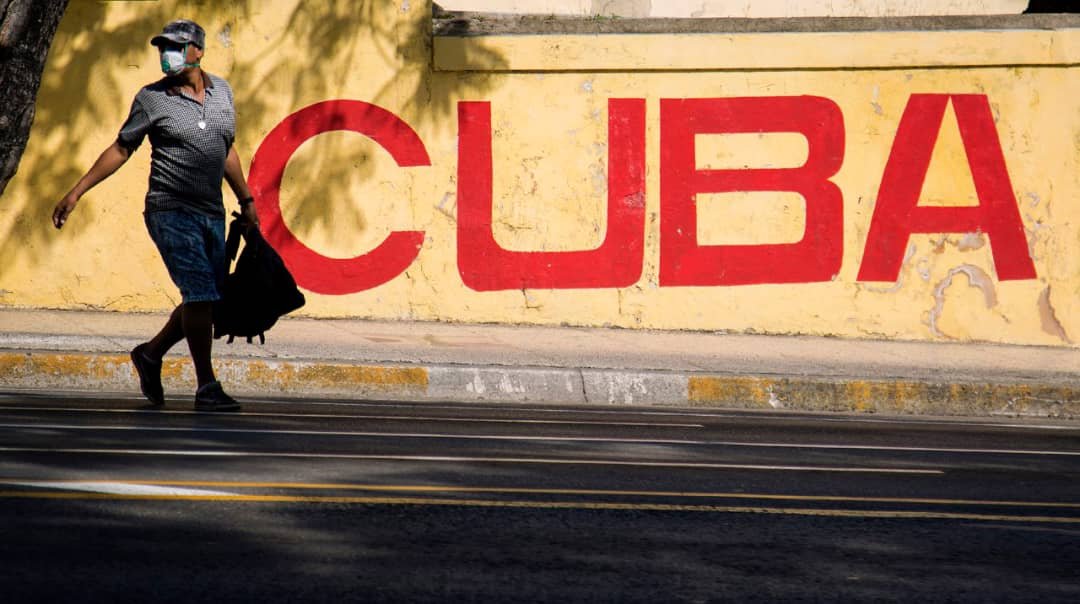
The entrepreneurial spirit in the face of economic uncertainty: Effectively facing COVID-19
FROM La Columna
By: Lester Upierre Rodríguez
In the 22nd issue of our magazine, I wrote an article whose primary intention was to reflect the possible economic routes to overcome the novel coronavirus pandemic in our country, based on the will of the entrepreneurs and the ideas that experts on the subject have proposed to the government to soften the inevitable blow.
This time, the debate is focused on the main impacts that private businesses have experienced, the alternatives that are applied to deal with an issue that goes beyond health and extends to political and socioeconomic fields, and the possible scenarios to overcome in the following months.
Beyond the negative impact that the blockade, government mismanagement, the lack of a wholesale market or the freezing of licenses may have had on national entrepreneurship, COVID-19 can be considered the most important threat that private businesses have had to face since 2010, as it attacks from all angles simultaneously, and not only affects those related to international tourism.
According to a report recently published by the Auge consultancy firm, “the most widespread effects are the fall or interruption of income, the worsening of the low availability of supplies, and the halting of investments to create new businesses.” This brings with it negative implications for employment, as “a fall in the number of workers hired from June is expected, due to the fact that the businesses that are supporting their workers with salaries will not be able to maintain their activities and wage protection for more than two months.”
According to the experts, “the Cuban economy will be affected both by the global recession, and by the negative effect derived from its own restrictive measures.” At the same time, the aforementioned interruption of income is tied to several realities: the inability to work, a fall in remittances, zero tourism, border closures that affect individual merchandise imports, and the drop in growth of main trading partners.
The chief damages that the sector experiences are the product of the breakdown of habitual work dynamics, a shortage of raw materials, payment of fixed costs without receiving income, a fall in sales levels in the case of establishments that are kept open, an interruption to investments for the creation of new businesses or for the expansion of existing ones, and the loss of clients, projects, contracts, agreements and commitments for the provision of services agreed before the epidemiological situation arose, among others.
Positive strategies of entrepreneurs and the private sector
Even in this uncertain scenario, initiatives have not stopped. A collaboration between the CubaEmprende project, the Oasis program and Auge itself, brought together examples of good actions by Cuban entrepreneurs who collaborate from various angles to support medical personnel or make these times more bearable for others.
The development of safety equipment or components to assist the work of health professionals has been a priority for projects such as 3D-Fab Crearte, which has manufactured face shields and valves for the assisted breathing system. Imprime, Elfos Gráfica, Estudio DiArt, DiHavana and independent designers have produced protective masks with plastic sheets and PVC that have been donated to the Military Hospital, Clínico de 26, Hermanos Ameijeiras Hospital, IPK, and the Abel Santamaría and León Cuervo Rubio medical centers, in Pinar del Río.
Likewise, the local development project En’rolla, in Camagüey, repaired the control panel of the Girbau washing machine at the Manuel Ascunce Provincial Hospital, which had been out of service for 6 months, and is very important at the current time. In addition, entrepreneur Ángel Pino Arocha decided to manufacture an “Aerosol box” for the use of intensive care personnel, which avoids direct contact with patients during intubation.
The donation of face masks has become the focus of the efforts of the Procle apparel venture, the PaPicarte barbershop, the Afro-Cuban business, BarbarA’s Power, and the Akokán local development project. For her part, perfumer Clara Camalleri stopped the manufacture of artisan perfumes to make hand sanitizer, which she has handed out to those who remain working near her residence and to employees of the Cuban Fund for Cultural Goods.
In addition to the food delivery projects mentioned in the last issue, the Creole restaurant Crystal is delivering free groceries to the elderly in the local community, and the Mandao courier service, together with Juanky’s Pan, is assisting older people identified by the Social Assistance system as critical cases. Mandao also linked up with D’Brujas to deliver its donations, including 150 bars of soap for the Diez de Octubre Childrens’ Home, and an equal amount for the Plaza de la Revolución municipality’s Elderly Care Home.
Other ventures that have not stopped are the Creative Photography School in Havana, offering weekly online workshops through WhatsApp; the El Guajirito sociocultural project, with the development of an informative and research app; and the Pura Vida Gym, which prepared online classes for anyone who wants to continue exercising at home.
What’s to come?
We have seen that enterprises have taken courses of action dedicated, on the one hand, to continued business operations and, on the other, to the protection of their employees, but their gradual recovery will depend on the “level of damage, their ability to adapt, the type of service they provide and their relationship or not with international tourism,” according to the Auge report.
The possible normalization will not come without difficulties, since once the crisis is over, enterprises will face late payments, the need to inject liquidity to restart activities, and a lack of supplies in the market; aspects that are linked to the absence of a functional and precise regulatory framework, the poor integration with other economic actors, and the immobility of economic policy that must remain consistent with the updating of the model.
This can be avoided, or at least its impact diminished, through simple government resolve. Strategic measures, such as correcting the contradictions and structural problems that affect the sector, or promoting the agreement of public-private partnerships to confront resulting problematic situations; financial measures, such as granting bank loans with low interest rates, both to provide the working capital required to restart activities and to protect the salaries of contracted workers; fiscal measures, such as the elimination of the labor force tax; or logistical measures that allow imports on a commercial basis, or expand the variety of products sold in foreign currencies; all part of a long road to follow in order to overcome the crisis as strongly as possible, regardless of the type of property in question.


